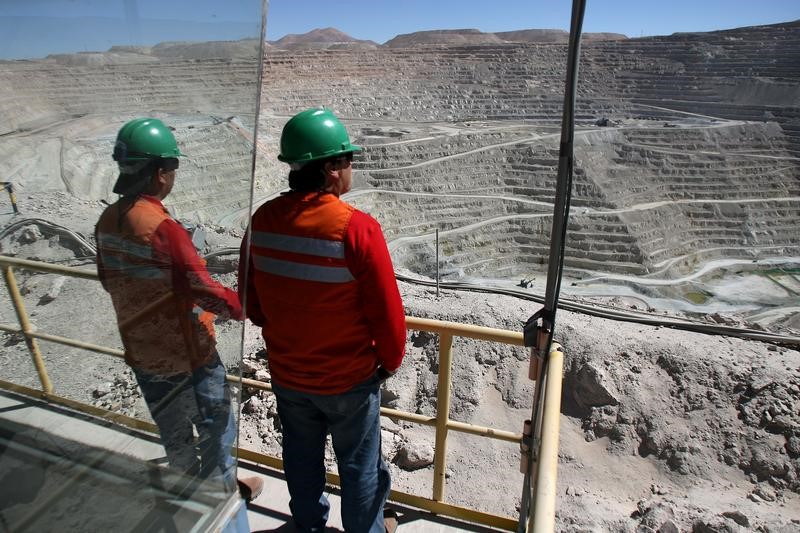(Repeats item issued earlier. The opinions expressed here are those of the author, a columnist for Reuters.)
By Clyde Russell
ASTANA, May 29, (Reuters) - With confidence seeping back into the global mining sector it's inevitable that companies will once again start to look at exploring for new reserves, and most likely come to some uncomfortable realisations.
The choice facing both major and junior mining companies is increasingly bifurcated; either work in relatively risk-free countries and chase expensive and dwindling deposits, or go to frontier markets and take on uncertain regulatory environments, challenging conditions and quite often corrupt officials.
While traditional mining powerhouses like Australia, Canada and Chile still offer opportunities, mining companies are under no illusion about the high cost of operating in these jurisdictions and the relatively low chances of scoring a major new deposit.
Rather the next large reserve of minerals such as copper, zinc, cobalt and others is likely to be found in places that are hard to do business in.
Africa is often cited as a continent filled with promise, but outside of countries with existing mineral sectors, such as South Africa and Zambia, it may just be too tough for many companies.
Step forward Kazakhstan, already a major producer of zinc, copper and other minerals, and a country that offers opportunities for those willing to take risks.
The Astana Mining and Metallurgy Forum, held last week in the Central Asian nation's capital, aimed to showcase what the country had to offer, and what steps the government was taking to attract investment.
On the surface it all sounded quite positive, with the government ministers present talking openly about the problems they have faced in the past, and committing to introduce a mining code based on that in Western Australia state, one of the world's top jurisdictions for investment in the sector.
"There is a lot to be done, and we will do it, but it will take some time," Alik Aidarbayev, the first vice minister for Investments and Development, told Reuters on the sideline of the conference.
But behind the optimism, there are numerous issues that need to be tackled before global mining companies may feel comfortable taking the plunge into what is one of the last great under-explored mineral prospects in the world.
Kazakhstan, the ninth-largest country in the world and the biggest landlocked nation, ranks poorly on the Transparency International Corruption Index, and well below top mining countries.
It scored 29 out of a 100 points in 2016, with the scale ranking 0 as totally corrupt and 100 as perfectly clean. Since 2010 its score has barely shifted, ranging between 26 and 29 points, suggesting there has been little improvement in the situation.
By comparison, Australia scores 79 points, Canada 82, Chile 66 and South Africa 45. Countries that offer mining opportunities that score the same or worse than Kazakhstan include Russia with an identical 29, Democratic Republic of Congo with 21 and Zimbabwe with 22.
DIFFERING EXPERIENCES
But the index is only an indicator and doesn't always reflect reality on the ground.
There appeared to be a sort of dual-track system currently operating in Kazakhstan, where the established miners enjoy good relations with the government and don't seem to encounter much in the way of official corruption, or least that's the message given by senior executives.
Larger players in Kazakhstan include the Glencore GLEN.L owned Kazzinc, privately-held Eurasian Resources Group and London-listed Polymetal International POLYP.L .
However, smaller players trying to gain a foothold report considerably more difficulty in navigating officialdom.
"It took us at least a year to work out how to get an exploration licence and another year to work out how this allowed us to operate," an executive at a smaller mining company told Reuters at the conference, speaking on condition of anonymity as he isn't authorised to talk to the media.
Nonetheless, more are giving it a go, with Perth-based minerals sands miner Iluka Resources ILU.AX running a greenfield exploration project, having established an office in Kazakhstan in 2015.
Mining services provider Aurora Minerals Group ARM.AX is also active and explosives manufacturer Orica Ltd ORI.AX operates two manufacturing facilities in the country.
What these companies all have in common is that they are Australian and it appears that they are trying to gain first-mover advantage.
Certainly the Astana Mining and Metallurgy event featured an Australian session, which was opened by Canberra's ambassador to Russia, Peter Tesch, who is also accredited to Kazakhstan.
The message being delivered was that Australian companies are keen to get involved in Kazakhstan, transfer skills and technology.
The underlying message was that Kazakhstan has to do more to improve the regulatory environment before any significant investment will be made.
Kazakhstan is the world's second-largest producer of chromium, first in uranium and highly prospective for other metals.
It also has the advantage of being able to export directly to neighbouring China, but still access Europe through rail links with Russia.
But it is a frontier market, presenting miners with challenges, both operational and political.
However, the need to replenish reserves and the cost and scarcity of projects in so-called safe jurisdictions means that ultimately miners will have little choice but to embrace the risks and go to Kazakhstan, or places like it.
